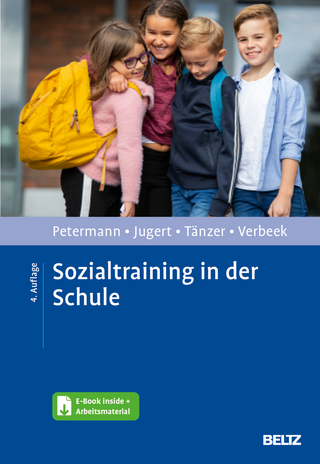
How the Brain Learns
Corwin Press Inc (Verlag)
978-1-4129-9797-3 (ISBN)
- Titel erscheint in neuer Auflage
- Artikel merken
One major development since the third edition of this text is the birth of a new academic discipline. Called educational neuroscience or mind, brain, and education science, this field explores how research findings from neuroscience, education, and psychology can inform our understandings about teaching and learning, and whether they have implications for educational practice. This new edition includes updated information on memory systems, especially the changes in working memory capacity; new research findings on how the explosion of technology may be affecting the brain; new information on brain organization and learning, and revised sections on hemispheric specialization;ánew research on how learning the arts enhances cognitive processing and creativity; an expanded Resources section that includes more Internet sites selected for their reliable information on the brain; and more than 150 new oráupdated references, most of which are primary sources for those who wish to explore the actual research studies. This book opens the door to educational neuroscience in the hopes that educators will experience the joy of seeing more students reach their full potential.
DR. David A. Sousa is an international consultant in educational neuroscience and author of more than twenty books that suggest ways educators and parents can translate current brain research into strategies for improving learning. A member of the Cognitive Neuroscience Society, he has conducted workshops in hundreds of school districts on brain research, instructional skills, and science education at the preK–12 and university levels. He has made presentations to more than two hundred thousand educators at national conventions of educational organizations and to regional and local school districts across the United States, Canada, Europe, Australia, New Zealand, and Asia. Dr. Sousa has a bachelor’s degree in chemistry from Bridgewater State University in Massachusetts, a master of arts in teaching degree in science from Harvard University, and a doctorate from Rutgers University. His teaching experience covers all levels. He has taught senior high school science and served as a K–12 director of science, supervisor of instruction, and district superintendent in New Jersey schools. He was an adjunct professor of education at Seton Hall University for ten years and a visiting lecturer at Rutgers University. Prior to his career in New Jersey, Dr. Sousa taught at the American School of Paris (France) and served for five years as a foreign service officer and science advisor at the US diplomatic missions in Geneva (Switzerland) and Vienna (Austria). Dr. Sousa has edited science books and published dozens of articles in leading journals on professional development, science education, and educational research. His most popular books for educators include How the Brain Learns, now in its sixth edition; How the Special Needs Brain Learns, second edition; How the Gifted Brain Learns; How the Brain Learns to Read, second edition; How the Brain Influences Behavior; How the ELL Brain Learns; Differentiation and the Brain, second edition (with Carol Tomlinson); and How the Brain Learns Mathematics, second edition, which was selected by the Independent Book Publishers Association as one of the best professional development books. The Leadership Brain suggests ways for educators to lead today’s schools more effectively. Dr. Sousa’s books have been published in French, Spanish, Chinese, Arabic, Korean, Russian, and several other languages. His book Brainwork: The Neuroscience Behind How We Lead Others is written for business and organizational leaders. Dr. Sousa is past president of the National Staff Development Council (now called Learning Forward). He has received numerous awards from professional associations, school districts, and educational foundations for his commitment to research, staff development, and science education. He received the Distinguished Alumni Award and an honorary doctorate from Bridgewater State University and an honorary doctorate in humane letters from Gratz College in Philadelphia. Dr. Sousa has been interviewed on the NBC Today show, by other television programs, and by National Public Radio about his work with schools using brain research. He makes his home in south Florida.
Preface to the Fourth Edition
Acknowledgments
About the Author
Introduction
1. Basic Brain Facts
2. How the Brain Processes Information
3. Memory, Retention, and Learning
4. The Power of Transfer
5. Brain Organization and Learning
6. The Brain and the Arts
7. Thinking Skills and Learning
8. Putting It All Together
Resources
Glossary
References
Index
| Verlagsort | Thousand Oaks |
|---|---|
| Sprache | englisch |
| Maße | 215 x 279 mm |
| Gewicht | 770 g |
| Themenwelt | Geisteswissenschaften ► Psychologie ► Pädagogische Psychologie |
| Sozialwissenschaften ► Pädagogik ► Sozialpädagogik | |
| Sozialwissenschaften ► Soziologie | |
| ISBN-10 | 1-4129-9797-6 / 1412997976 |
| ISBN-13 | 978-1-4129-9797-3 / 9781412997973 |
| Zustand | Neuware |
| Informationen gemäß Produktsicherheitsverordnung (GPSR) | |
| Haben Sie eine Frage zum Produkt? |
aus dem Bereich



